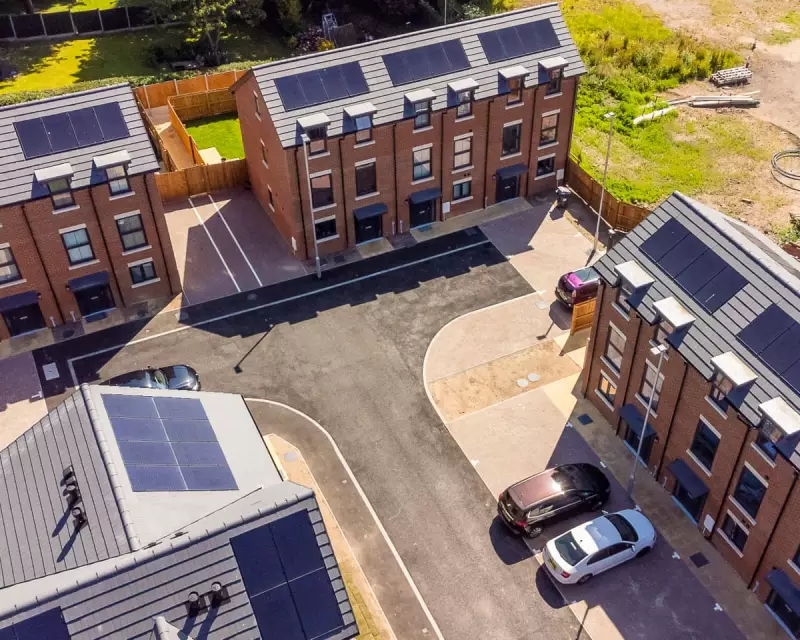
A groundbreaking study of new-build homes in Birmingham has revealed that properties designed to meet upcoming environmental standards place significantly less strain on the electricity grid than experts had predicted.
Lower Peak Demand Defies Expectations
Researchers from Birmingham City University analysed electricity consumption data over one year from seven all-electric social homes in Handsworth, Birmingham. The development, known as Project 80, was completed in 2022 and features air-source heat pumps and solar panels.
Dr Monica Mateo-Garcia, the academic lead at the university's Centre for Future Homes, stated that the average peak electricity demand per property was lower than we would expect. This finding is significant as critics have often warned that a widespread switch to heat pumps could overwhelm the national grid.
Furthermore, the timing of peak energy usage varied between the different households. This variation helps to flatten overall demand, further reducing stress on the energy infrastructure.
Substantial Energy Savings for Households
The study documented impressive reductions in energy use. The annual total energy consumption for each property was between 40% and 67% lower than the UK average.
Professor Richard Fitton from the University of Salford, who was not involved in the research, praised it as a sterling bit of work. He added, We currently seem to be overpredicting how much power we need in new-build housing.
All the homes in the study adhere to the draft version of the government's Future Homes Standard from 2019, which mandates an 80% reduction in carbon emissions for new builds compared to 2013 regulations.
Real-World Performance and Future Potential
The research also highlighted the importance of user education and accurate energy modelling. In some cases, residents manually switched on immersion heaters unnecessarily, not realising their systems provided hot water automatically. One family turned off their heat pump entirely, opting for less efficient electric fan heaters.
Despite these minor issues, residents reported being delighted with their new homes, specifically noting the absence of damp and mould. An interim report even noted that one family, which had previously suffered from recurring asthma, saw those symptoms disappear after moving in.
Tony Hopkin of Midland Heart, the housing association behind the development, emphasised the need for realistic energy modelling. The housing provider is now planning a new development of 95 homes based on the successful principles of Project 80 and is exploring adding battery storage to take better advantage of smart tariffs.
Professor Aaron Gillich of London South Bank University argued that this study supports the wider rollout of heat pumps, stating that the reasons not to proceed are slowly but surely falling away.





